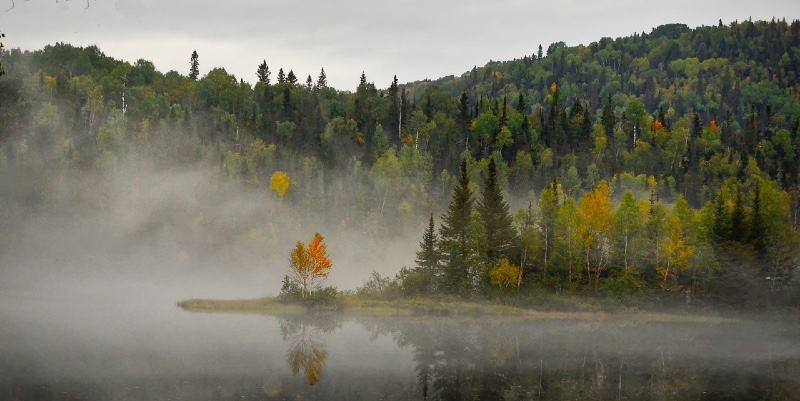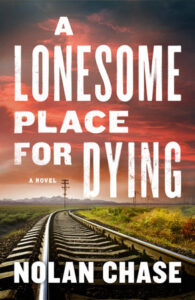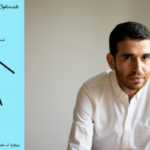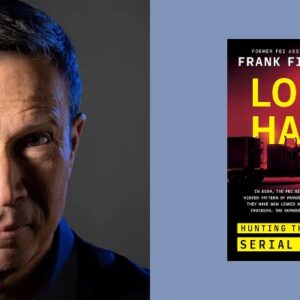In “Soprano Home Movies” from season six of The Sopranos, Tony and Carmella are vacationing in upstate New York at the cottage of Tony’s brother-in-law and caporegime, Bobby Baccalieri. Bobby reveals that his family immigrated from Italy via Canada rather than through Ellis Island. He also admits he’s never killed anyone, making him an anomaly in mafia circles. After a game of Monopoly turns violent, Tony orders Bobby to help seal a deal with Quebecois pill traffickers by taking care of a hit for them in Montreal. Bobby is forced to cross the border—more than one.
The southern border in crime fiction stands for transgression and escape. Crossing it is both literal and figurative: when things go south, the characters do, too. Across the border is a world where the same rules don’t apply. It can symbolize freedom (The Getaway) or tyranny (The Cartel), fortune (The Treasure of the Sierra Madre) or an anonymous death (The Hitch-Hiker). Of course this runs the risk of stereotyping—if the United States is ‘normal,’ than what lies beyond its borders must be something other.
The northern border is less heavily politicized than the south—racist politicians generally don’t gin up white anxiety with fears of illegal Canadians flooding over the 49th Parallel. Yet less than 200 years ago, the border itself was a contested political topic—President Polk ran on the slogan “54-40 or Fight.” The desolate north, the Edenic wilderness, the placid Canadian towns—these are also sites of transgression, escape, and death. In Twin Peaks, the really bad business was usually transacted on the other side.
White collar workers whose daily commute takes them between Windsor and Detroit across the Ambassador Bridge. The Mohawk community of Akwesasne (St. Regis) which shares borders with both Quebec and New York. Traffickers in “B.C. Bud” expanding into harder drugs now that Washington and Colorado have legalized cannabis.
Rum runners. Draft dodgers. Smugglers. Fugitives on the run. If crime fiction is about transgression, what better site than the border?
#
Blaine, Washington, is a seaside town on the edge of the world’s longest undefended border. With a population of only five thousand, Blaine sees eight million vehicles pass through its Peace Arch crossing every year. Roughly located between Seattle and Vancouver, Blaine is ideally placed for drug smuggling, human trafficking, larceny, and murder.
In other words, the perfect setting for a mystery.
My novel A Lonesome Place for Dying takes place in Blaine. It’s Ethan Brand’s first day as Chief of Police, and already he’s received his first death threat. Before Ethan can sort out who’s trying to kill him, a body turns up near the railroad tracks, a knife wound in the side. Is the victim a local, a hapless citizen from another country, or someone involved in transnational crime?
The border is a complex place, both geopolitically and as metaphor or myth. Here are some novels which confront that.
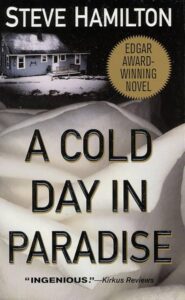
A Cold Day in Paradise by Steve Hamilton
Hamilton’s first novel won both the Edgar and Shamus award. It introduces Alex McKnight, a former Detroit cop who now lives in a cabin on Lake Michigan. Called across the border to Sault Ste Marie by a friend, he finds the body of a local bookie, and more trouble than he bargained for.
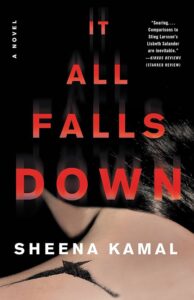
It All Falls Down by Sheena Kamal
Nora Watts, a Vancouver detective, flies to the Detroit-Windsor area to unravel a mystery involving her father. Weaving between the Black and Lebanese communities of Motor City, Watts confronts Canada’s horrific policy of forced adoption for Indigenous children.

Borders, by Thomas King and illustrated by Natasha Donovan
A man stopped at the border is asked for his nationality and replies, “Blackfoot,“ setting off a funny, philosophical and tragic exploration of colonial authority and nationhood. Who gets to say where a person is from?
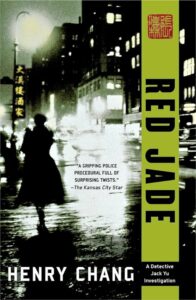
Red Jade by Henry Chang
Jack Yu is a detective who lives and works in New York’s Chinatown. In Red Jade, Yu follows an international criminal network linking Chinese communities across the continent, ending in Vancouver and Victoria.
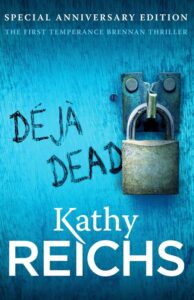
Deja Dead by Kathy Reichs
Reichs, like her series protagonist Temperance Brennan, is equally at home on either side of the 49th Parallel. When Brennan leaves North Carolina to take a job in Montreal as a forensic anthropologist, she finds herself investigating a dismembered and decomposed corpse. Brenna is soon convinced this is the work of a serial killer.
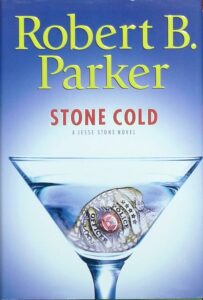
Stone Cold by Robert B Parker
In Stone Cold, police chief Jesse Stone battles a husband and wife serial killers who wreak havoc in the small town of Paradise, Massachusetts, before Stone catches up with them in Toronto. (Parker’s more famous detective, Spenser, visits the Montreal Olympics in The Judas Goat to dismantle a terrorist plot.)
***

